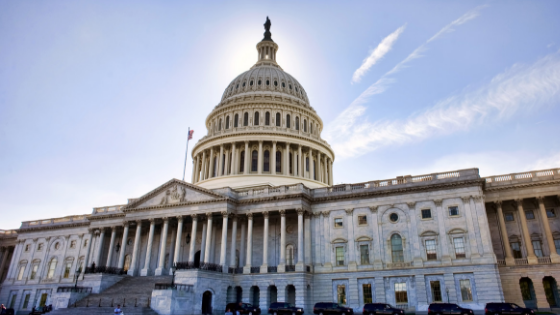A new bill in the House of Representatives is tackling a workplace hazard that’s long been disregarded: increasing heat.
H.R. 3668, Asuncion Valdivia Heat Illness and Fatality Prevention Act of 2019, was introduced by Representative Judy Chu of California to address the current lack of protection for workers.
Here’s what you need to know about the bill, current employer responsibilities, and changes on the horizon.
The Danger of Rising Temperatures
According to the Bureau of Labor Statistics, more than 15 million people have jobs that require them to be outdoors at some point. And that’s a serious concern since excessive environmental heat stress killed 783 workers and injured more than 69,374 from 1992 to 2016.
As our climate changes, heat waves are becoming more intense. And that leaves workers at serious risk.
The Centers for Disease Control and Prevention (CDC) has long recognized the dangers of heat-related illnesses.
Take heatstroke, the most serious heat-related illness. Heatstroke occurs when the body is unable to regulate internal temperature, causing body temperature to rise uncontrollably. Internal temperature can rise as high as 106 degrees Fahrenheit in 10 to 15 minutes.
Without immediate emergency treatment, heatstroke results in permanent disability or death.
But there are also lesser heat-related illnesses that can afflict workers over time, like heat exhaustion, heat stress, heat cramps, heat rash, and heat syncope.
New Legislation
The new legislation, introduced on July 10, would force the Occupational Safety and Health Administration (OSHA) to create a standard mandating that workers in high-heat environments must have paid breaks, access to water, and limited exposure to heat. This would apply to indoor and outdoor workers alike.
In addition, employers would be required to educate their employees on the health risks of extreme heat exposure and procedures to respond to heat-related illnesses.
OSHA would also be obligated to put such measures into effect within 42 months.
The Current State of Regulation
While the National Institute for Occupational Safety and Health has its own set of recommendations for occupational heat exposure, there are not any current official regulations for occupational heat exposure.
In addition, while NIOSH does offer recommendations, they have no mechanism to enforce them.
Currently, only California, Minnesota, Washington state, and the United States military have adopted heat protection standards.
OSHA itself has guidelines about heat exposure and safety, but again, there are no official regulations and OSHA has no means of enforcing its recommendations. If regulations were passed, OSHA would be able to enforce them as it would any other occupational health and safety violation.
The Goal of New Legislation
The goal of Representative Chu’s legislation is to introduce heat protections for all workers.
The bill is named for Asuncion Valdivia, who died of heat exposure picking grapes for ten hours straight in 105-degree temperatures.
According to Rep. Chu, the bill extends common sense heat exposure protections to all workers, including farmworkers who labor under difficult conditions to put food on the table.
Opponents to the bill cited OSHA’s General Duty Clause, which requires that the agency check off each step of a four-part list before censuring an employer:
- An employer failed to keep their workplace free of a hazard to which employees were exposed
- The hazard was recognized
- The hazard caused or was likely to cause injury or death to workers
- A feasible and useful method of correcting the hazard was available
The problem with relying on the General Duty Clause, according to supporters of the bill, is step three, which requires OSHA to show that the hazard caused or was likely to cause serious harm to workers.
At that point, supporters argue, the harm is already happening. The goal of Rep. Chu’s bill is to prevent such conditions from ever putting workers at risk.
